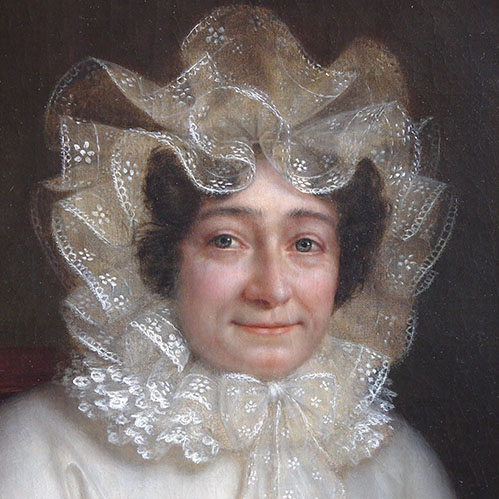History: In the beginning of 1800
In some countries our Congregation is known by the name “Picpus”, after rue de Picpus, the street where our central house was established shortly after the community’s foundation. The French provincial house of the Sisters is still in that house, as well as a community of Brothers.
On Christmas day 2000 the Congregation has celebrated its two hundredth anniversary. The Congregation wants to unite itself to the whole Church in this new Millennium, seeing this as an important time of personal renewal.
The Congregation was founded in 1800 by Pierre Coudrin and Henriette Aymer de la Chevalrie during the French revolution, when people were living in misery and the Church was being persecuted.
The Good Father Pierre Coudrin

The mystical grace that he receives in hiding in the loft of the Motte, gives his priesthood the perspective of spreading the Gospel even to the most remote islands. Going out of the grain loft, he kneels at the foot of a holm oak tree and vows to “suffer everything, to give himself to God. to die if necessary in his service.” And already he sees himself with many brothers and sisters. The pastor is becoming a founder.
Once he takes his vows on Christmas 1800, the now Father Marie Joseph is at the service of this work of God. He no longer thinks just of himself. Along with his service to the community, he also exercises the pastoral ministry as vicar in different dioceses (Tours, Sées, Troyes, Rouen, etc.). He also desires to bring to reality the dream of missions in far off islands. The two loves of his heart are the service of the Church and the expansion of his Congregation. His visits, letters, counsel and love accompany the rapid growth of the Congregation. The man from the country becomes the leader of a brotherhood with all its different people and circumstances. Everyone knew that he was really “the Good Father.”
Convinced of being part of the mysterious plan of God and attentive to the signs of God’s action he finds in the Society of the Sacred Heart a group of women who were looking for something more and who are already leading a sort of religious life. It is there that he meets Henriette Aymer. United in giving themselves to the Sacred Hearts, the community grows, centered in the Gospel and the redemptive love of God manifested in the pierced Heart of Christ.
The Good Mother Henriette Aymer

“Consecration to the Sacred Hearts is the foundation of our institute.”
She experiences the impact of social and religious persecution. Seeking meaning for her life, after encountering God in prison, she is led to the Society of the Sacred Heart, to Father Coudrin, her guide and to the group of “Solitaries” with whom she will begin to journey. This is the first nucleus of the Congregation.
From that time on she gives herself to forming the Congregation. Around her gather the Solitaries and other women who are looking for an opportunity to consecrate themselves after the destruction of religious life during the terror. Her innate gift for leadership allows her to grow into a foundress and even more, a mother. Her goodness along with a strong, lively and sensible character made her mother and foundress in the sisters’ branch as it grew rapidly in those first years.
One of the dilemmas we find in the life of “the Good Mother” is the conjunction of aspects that are seemingly contradictory. Her deep mystical life led her to spend hours in adoration, in continual union with God and to the experience of mystical phenomena that she herself was unable to explain but which Father Coudrin took advantage of to know the plan of God for the young Congregation. Joined to her mystical side was tireless activity. She made more than twenty foundations in different parts of France, attended to the sisters’ formation and supported the superiors she appointed to local communities.
Henriette had the practical responsibility for all the material aspects of both branches. She was a true mother in her love and her concern for all. And we must also mention the incomprehensible need she felt to do penance that today we would consider excessive. Add to that her travel and long hours of night adoration, the life of the Good Mother is ”a constant miracle,” as the Good Father said.
Her correspondence with both brothers and sisters, her short “messages” for the Good Father, what we call her “billets,” and the witness of those who knew her, speak to us a strong and sensitive personality, a woman of action and also deep feeling, a woman with common sense who was also a contemplative like the great mystics. She was a complex and rich woman of God and mother of many, the “Good Mother.”




